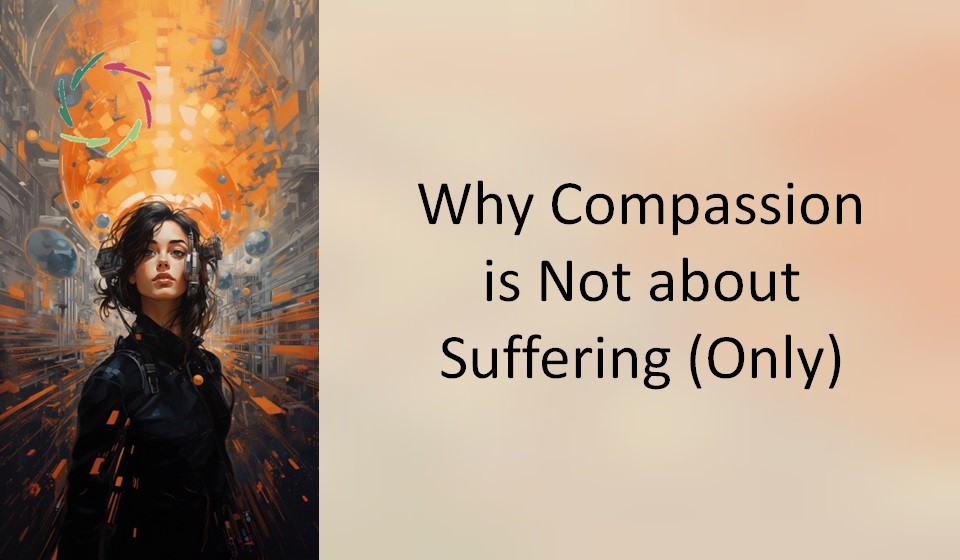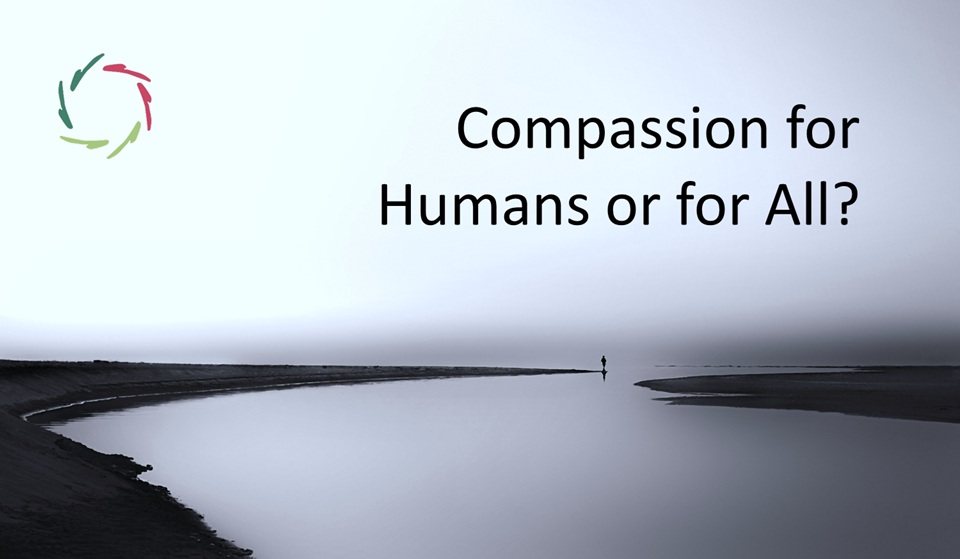Why Compassion is Not about Suffering (Only)

In AURELIS setting, at least, Compassion is about mental growth as much as suffering. It’s not about suffering only.
See also Two-Sided Compassion
Aurelian Compassion is not pity.
In many cases, pity is not wanted and doesn’t form part of Compassion. Purely by itself, surface-level pity does not diminish suffering, nor does it enhance mental growth.
Moreover, pity can obfuscate what another person really needs or even enhance the suffering by focusing the person on the latter in unhelpful ways that are related more to the pitier than the pitied.
Compassion is not about suffering (only).
Suffering can be part of the human growth process by frequently being a call for the latter, one way or another. Of course, the suffering itself needs to be taken care of. However, a focus exclusively on suffering may backfire in several ways — paradoxically but naturally. For instance, the sufferer may feel guilty for the suffering of the one who sympathetically cares for him.
Trying to push a ball underwater brings about a pushing back – from the water – that may be followed by a significant splash (meaning more and possibly unintended suffering).
Therefore, Compassion must be about more than a focus on suffering. It must be central to a holistic view.
Otherwise, even when it seems to work, there is no durability.
Aurelian Compassion starts from a broad view in space and time. It’s profoundly focused on durability — not only the suffering of here and now. Only oriented on the here and now, we have sympathy, maybe empathy, but no Aurelian Compassion. The latter is a transcendent concept — sometimes less straightforwardly concrete but much more meaningful and globally relevant.
The choice should be clear. If it’s not, one might try harder to discern the aboutness. The aim is not misty.
This is also relevant in psychotherapy, where a focus regularly lies much more on the suffering than the mental growth ― being a medical model.
Human growth diminishes suffering like nothing else.
Feeling the closeness and attention of another person works this way. The closeness lets two people grow ― making the suffering meaningful, thereby, less hurtful. There may be no diminishment of suffering possible – all in all – without an orientation on mental growth.
There is no magic involved in all this, and no automatic happening. On the contrary, there is an organic change for the better. Organisms encounter themselves and each other in organic growth. This not only makes them suffer less in the moment but also makes them more resilient in the future.
However, Compassion is not easy ― practically or theoretically.
It deserves much coaching. This has been taken at heart very profoundly in AURELIS-coaching.
As you may know, AURELIS is a growth philosophy. Therefore, the why of this blog’s title is the why of AURELIS/AureLisa.
Basically, it’s because you are worth it as a total person ― and so is any other person on this beautiful and interesting planet.


